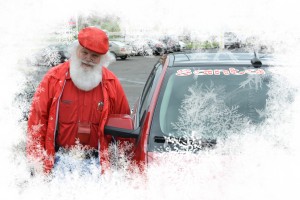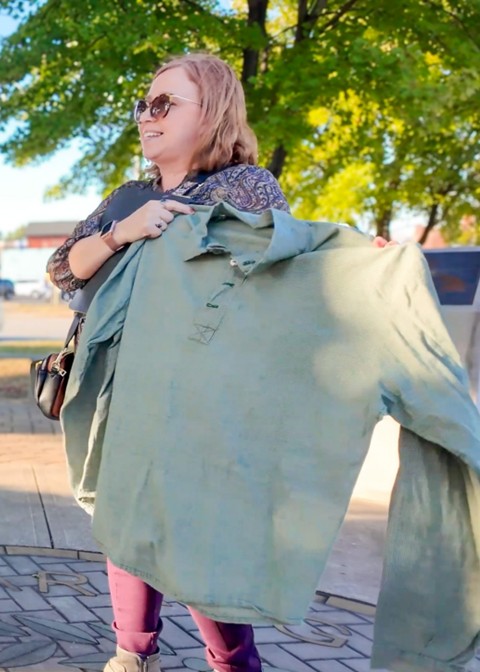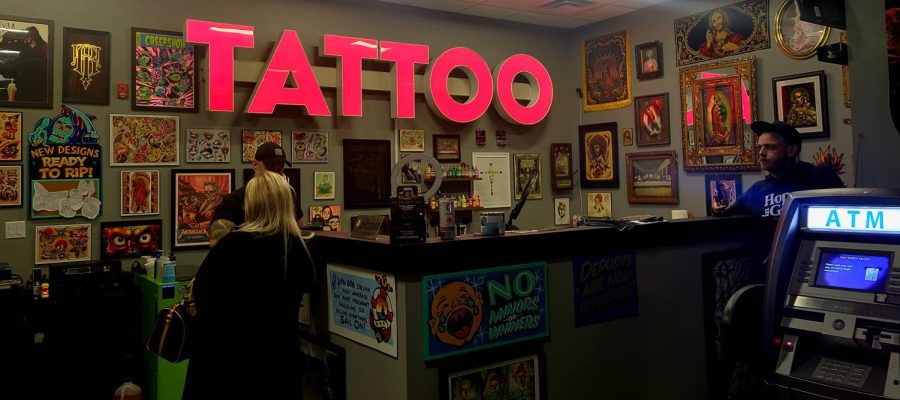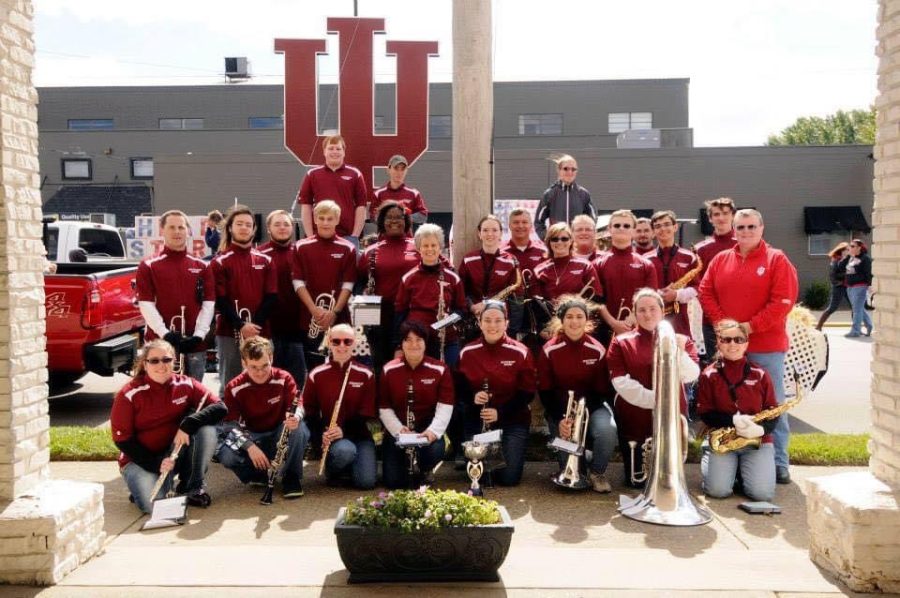Jerry Owens cannot even go to the gas station without someone stopping to talk to him. Of course, this might have something to do with the fact that he resembles a popular celebrity. Owens is known as the Kentuckiana Santa. His wife, Diana Owens, is known as Mrs. Claus and works in the IUS Career Development Center.
“The suit finds you, you don’t find the suit,” he said.
Owens sports his full, white beard all year long. Owens said he has been scared to shave off his beard and try to grow it back in time for Christmas.
As Owens grew older, he said his black beard turned white and people started telling him he looked like Santa Claus. Over time, he decided to embrace the persona of Santa and began to wear a red sweater and bring candy canes to the patients in the VA Medical Center where he worked in the engineering department, Owens said.
He said one day someone asked him to play a full-suited Santa at a party. Owens did not have a suit, but he said he and his wife went to JC Penney to order a $300 suit from a catalog.
Owens said he was not sure how to act as Santa at first.
“I was scared to death,” he said.
However, one little girl ran past the line of children and up to Owens, he said. As she sat on his lap, she looked up at him and said, “I love you, Santa.”
After that, Owens said he knew he had found his calling. He worked part-time as Santa Claus while he continued to work at the VA Medical Center until he retired, he said. Owens said he attended the Charles W. Howard Santa Claus School in Michigan to learn more about being a Santa Claus and what it means to put on the persona of such a magical and mythical figure.
After retirement, Owens dedicated himself to becoming a full-time Santa Claus. He has gained prominence after appearing in a pilot Coca-Cola commercial on YouTube and in an upcoming documentary called “They Wore the Red Suit.”
“I don’t make a lot of money, but some things are priceless,” he said.
Owens said he charges for appearances with organizations and businesses that he knows have expense accounts, and he will do what he can for those that are having a hard time on a first-come-first-serve basis.
However, Owens is hospice-trained and dedicates much of his time to volunteer work.
Owens said his wife, Diana, tells him he becomes a completely different person when he puts on the $1400 Santa suit. He gets a special glow on his face and his laugh is deeper.
Diana said when they go out, people often interrupt them and ask to take a photo with Santa Claus.
“I don’t consider it an interruption because he brings such joy to people,” she said. “It is like having Christmas year round. I love it.”
Owens said he enjoys making all people smile – adults and children. People can get lost in the hustle and bustle of life, he said, but when he stops and asks people how they are doing, he said they slow down for a minute and smile.
Everywhere Owens goes, he brings a small pouch full of bells, stickers and candy for any children he might see. Owens said he always tries to live up to the reputation of Santa Claus and when someone cuts him off in
traffic, he waves all five fingers.
Santa Claus is such a well-known figure that even Alzheimer’s patients who cannot remember their children or recognize their spouses can remember Santa Claus, Owens said.
“It brings them back to being a child,” he said.
Owens said remembering can open a line of communication with individuals with Alzheimer’s.
When children see Owens in a store, sometimes parents tell their children that he is not Santa Claus but just a man in red clothing.
“Why do we want to take away a little bit of magic of being a child?” he said. “All too quickly you’re going to grow up and reality will hit you in the face. Why not let a child be a child while they can?”
Owens said although parents sometimes expect him to scold or correct children, that is not his job. His job is to listen to the children’s wishes and desires and offer them some hope, he said. Owens wants people to know that somewhere, someone loves them.
He said far too often children sit on his lap and tell him that all they want for Christmas is for their parents to play with them. Children will remember when their parents interacted with them and they will remember the people that took the time to communicate with them, Owens said.
Owens said almost everyone remembers their first interaction with Santa Claus, and sometimes adults will sit on his lap and cry. They cry because they did not want to let that part of their childhoods go, he said.
“Human beings all want the same thing,” Owens said. “All they want is to be respected, accepted and be loved. You need the love. That’s what we’re all looking for – we’re looking for someone in all the hurt and the pain and the hustle and the bustle to love us.”
Once, Owens said he met a little girl who asked to have her daddy back for Christmas. When Owens asked where her daddy had gone, the little girl replied, “‘My daddy died.’”
Owens said he told the little girl to put her hand on her heart and feel it beating. When she did, Owens told the girl that the heartbeat was the love of her father and that when she got scared she could feel her heartbeat and know that it was her father’s love reassuring her.
“‘The love of your daddy is the love of Santa Claus; it never goes away,’” Owens told the girl.
Sometimes, people ask Owens how he knows what to tell children.
“We basically lead with our hearts,” he explained.
Owens said sometimes it can be difficult for people to understand why he does what he does. People tell him that Christmas is over and that he should give the “Santa act” a rest.
“I worked all my life,” he said. “I did what everybody else wanted me to do, and I did my job well. Now, I do what I want to do. And I would not change looking what I look like and doing what I do for the world.”
Owens said he hopes he can help inspire others to continue his work.
“My only hope is that I can affect someone enough to take my place and keep this magical, mystical figure alive,” he said.
By HANNAH ASH
Staff
hash@ius.edu






